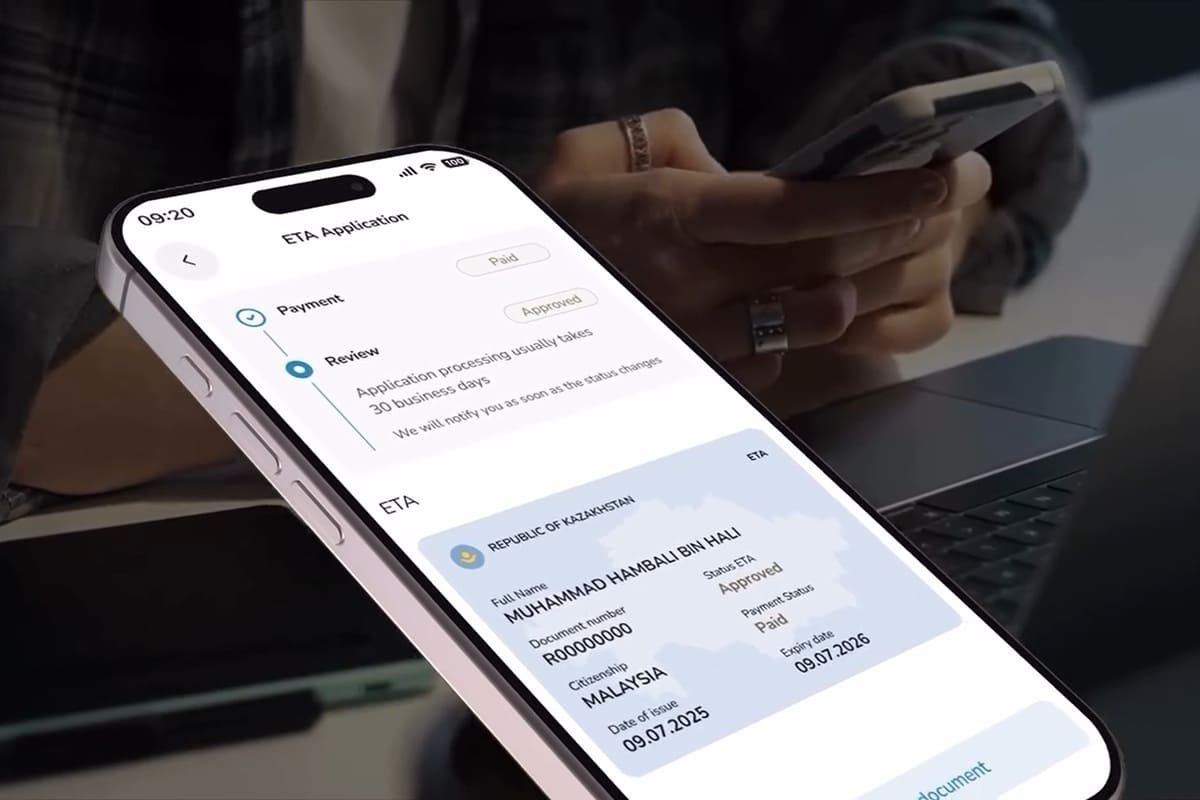Since July 15, 2024, tourists and business travelers from 93 countries can stay up to 60 days visa-free in Thailand. This period can be extended by a further 30 days on site.
Last May, when announcing this extension of the visa waiver policy, the Thai authorities also revealed their intention to introduce an electronic travel authorization system for visitors eligible for this visa exemption.
Like the United States (ESTA), Canada (AVE), South Korea (K-ETA), which already have a similar system, or Israel and the United Kingdom, which will officially launch their ETA in 2025, Thailand will therefore soon impose an electronic travel authorization (ETA) on travelers entering the country under the visa exemption regime.
Thailand Ministry of Foreign Affairs moves forward on ETA
In charge of developing electronic travel authorization with other government bodies, the Thai Ministry of Foreign Affairs currently announces that it is working on the ETA system.
In a report released after a recent meeting between Maris Sangiampongsa, Minister of Foreign Affairs, and Rangsiman Rome, Chair of the House Committee on National Security, Border Affairs, National Strategy and National Reform, the Thai MFA states that it is “accelerating the implementation of the Electronic Travel Authorization (ETA) system”.
According to Thai diplomacy, the ETA “will be an important tool for screening and tracking the movement of foreigners entering Thailand”.
What we know about ETA for visa-exempt travellers to Thailand
Here is the latest information on the Electronic Travel Authorization (ETA) that will soon be introduced in Thailand (to be confirmed in the coming months):
- ETA should be available by December 2024 in a pilote phase;
- The ETA system should be fully deployed by June 2025;
- The ETA application will be submitted on the electronic visa (e-Visa) portal: www.thaievisa.go.th;
- Whether arriving by air, sea or land, all visa-exempt travelers will be required to hold an approved ETA before arriving in Thailand;
- The ETA should be requested for each entry into Thailand (single entry);
- The ETA should be free of charge;
- ETA holders will be able to use the automated gates at immigration checkpoints using the QR code on the ETA;
- Holders of diplomatic passports, official passports, UN Laissez-Passer and Border Pass users will be exempt from the ETA requirement for travel to Thailand.
93 nationalities exempt from visa requirements for 60 days in Thailand
Citizens of the following 93 countries and territories do not need a visa, or an ETA for the time being, to stay in Thailand for up to 60 days:
- Albania
- Andorra
- Australia
- Austria
- Bahrain
- Belgium
- Bhutan
- Brazil
- Brunei
- Bulgaria
- Cambodia
- Canada
- China
- Colombia
- Croatia
- Cuba
- Cyprus
- Czech Republic
- Denmark
- Dominica
- Dominican Republic
- Ecuador
- Estonia
- Fiji
- Finland
- France
- Georgia
- Germany
- Greece
- Guatemala
- Hong Kong
- Hungary
- Iceland
- India
- Indonesia
- Ireland
- Israel
- Italy
- Jamaica
- Japan
- Jordan
- Kazakhstan
- Kosovo
- Kuwait
- Laos
- Latvia
- Liechtenstein
- Lithuania
- Luxembourg
- Macau
- Malaysia
- Maldives
- Malta
- Mauritius
- Mexico
- Monaco
- Mongolia
- Morocco
- Netherlands
- New Zealand
- Norway
- Oman
- Panama
- Papua New Guinea
- Peru
- Philippines
- Poland
- Portugal
- Qatar
- Romania
- Russia
- San Marino
- Saudi Arabia
- Singapore
- Slovakia
- Slovenia
- South Africa
- South Korea
- Spain
- Sri Lanka
- Sweden
- Switzerland
- Taiwan
- Tonga
- Trinidad and Tobago
- Turkey
- Ukraine
- United Arab Emirates
- United Kingdom
- United States
- Uruguay
- Uzbekistan
- Vietnam








Hi, I am travelling from Singapore to Bangkok in the first week of Jan 2025. I have checked and unable to find ETA application website. Any advice if ETA has started yet since it’s December now.
Hi,
The ETA system did not come into force on December 1, and is not expected to do so until next year.
No official date has been given by the Thai authorities.
I travel in mid december will i need a ETA to enter Thailand , or is it ok till it comes in force in june 2025
Dear mark,
Thai authorities have not yet confirmed a timetable for ETA’s deployment.
I am travelling to Bangkok on 1ft December how do I get a ETA for that date
Dear Ellen,
Thai authorities have not yet released the procedures for applying for and obtaining the electronic travel authorization (ETA). Stay tuned.
I’m travelling to Thailand in February next year from Australia for 30 days Do I need an ETA .?
Dear Robert,
According to the announcements of the authorities, the ETA system currently being prepared will come into force in pilot version as early as December and will be fully introduced in June 2025.
The list of nationalities that will have to/will be able to apply for an ETA as early as December has not yet been communicated by the Thai authorities.
Stay tuned for more information in the coming weeks.
How about expats living in Thailand on a retirement visa that travel and return to Thailand with a Rentry Permit (TM8) in their passport? does this ETA apply?
Dear Al,
So far, Thai authorities have only announced that this will only affect travelers entering the country under the visa-free regime.
Nothing on the residents’ side (for now).
Surely this will put a stop to visa runs !
Great News!! I’m so happy I found this website! It provides information that individual countries do not even post on their immigration websites.
It would be really cool if the countries of S.E. Asia would come up with a program like Europe’s Schengen Visa that allows entry into all countries in the area for a set amount of time!
Thanks for the news!